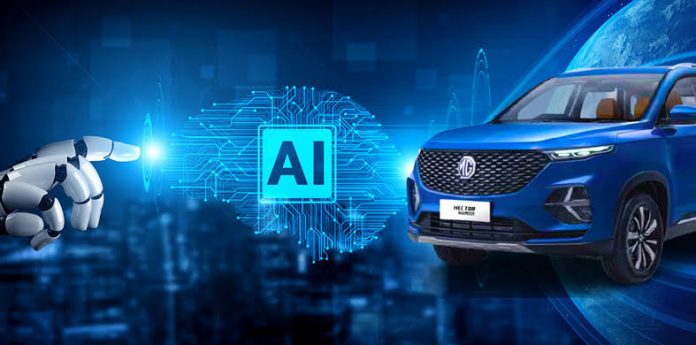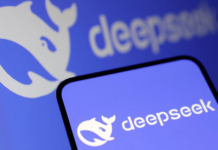This is not the first connected car in India, and neither is Autonomous Level 2 driving technology
Announced on Wednesday, the Astor will have Autonomous Level 2 driving technology. This implies that the car can temporarily take control of the steering and speed of the vehicle. It is also referred to as an advanced driver assistance system, or Adas.
In the global MG portfolio, the Astor will also be the first vehicle to have personal AI assistant with the help of Autonomous Level 2 driving technology, says the unit of China’s SAIC Motor Corp.
This is not the first connected car in India, and neither is Autonomous Level 2 driving technology. However, the MG Astor is expected to be priced between Rs. 10 lakh and Rs. 17 lakh, making it much cheaper than the Mercedes and Volvo vehicles that come with Autonomous Level 2 driving technology in India, but cost over Rs. 40 lakhs.
Also, Mahindra & Mahindra Ltd has announced that its new XUV700 SUV will feature Autonomous Level 2 driving technology or Adas among other technologies.
“As it is relatively cheaper to match premium brands’ offerings around connectivity, volume brands can also use their connected features to compete with the upper end of the market”, Vinay Raghunath, a partner at EY, who specializes in auto and mobility sectors, wrote in a post.
According to MG, the Astor is powered by mid-range radars and a multi-purpose camera that can realize a series of Adas. These include adaptive cruise control, forward collision warning, automatic emergency braking, lane keeping assist, and lane departure warning and speed assist system. These are aimed at improving driving safety and comfort.
Meanwhile, cars like the Mahindra XUV300 with a price range of Rs. 7-13 lakh use e-SIM-based connected systems. The Astor, however, takes things a step forward. Other than Autonomous Level 2 driving technology, it also comes with a so-called Digital Passport. Driving data from sensors in the cars are stored in a block-chain-based platform. This data can then be used to decide the resale value of the car, insurance premiums and possibly more. Better drivers can, thus, potentially get lower premiums and better-maintained cars can get higher resale values.
To deploy Autonomous Level 2 driving technology in cars, Praphul Chandra, founder of Koinearth, the company that built the Astor’s Digital Passport feature, said it plans to work with more auto and insurance firms.
“With AI-enabled connected car tech, we are making contact with the Mercedes-Benz World even more individual, transparent, attractive and convenient. Connected cars that leverage AI ensure customers are another step closer to turning the car into a mobile assistant through in-car, smart-phone and home connectivity solutions”, said Martin Schwenk, Managing Director and CEO of Mercedes-Benz India.
To be sure, there are six levels of self-driving vehicles–0 to 5. Level 0 means absolutely no automation. Level 1 car has a single automated system like cruise control, which controls acceleration. Level 2 cars have an Autonomous Level 2 driving technology or Adas that can simultaneously take control of both steering and acceleration/deceleration. Level 3 automation includes environment detection, meaning the car can make informed decisions based on its surroundings, while Level 4 cars can almost completely run themselves, but with an option for human interference. Level 5 cars are fully automated.
There are no Level 5 cars plying on the roads globally so far. Elon Musk’s Tesla cars are also not fully Level 3 models.
Sidharth Jain, co-founding partner of PSL Advocates and Solicitors, noted that while India isn’t too far from the “idea of Autonomous Level 2 driving technology in vehicles”, it’s not as simple here as in other countries.
“Autonomous vehicles pose legal and labour concerns, like ascertaining the liability in case of an accident and the loss of employment. In 2018, the government had completely rejected the idea of autonomous vehicles. However, lately, amendments were proposed in the Motor Vehicles Act in favour of autonomous technology which is subject to the approval of Legislature”, he said, noting that road and traffic conditions are a concern too, though tests are being carried out in select locations in the country.
Schwenk said Mercedes, which introduced Adas in India in 2019, will introduce the more advanced level 3 autonomous tech globally this year and can bring that tech to India if regulations permit.
“Currently there’s no law in India on Autonomous Level 2 driving technology or driverless mobility. The Motor Vehicles Act amendment of 2019 could have addressed some innovation and sandboxing on this. But a policy and legal framework on artificial intelligence has to precede Autonomous Level 2 driving technology. Since the Indian AI ecosystem is fast evolving, it’s not premature to come up with an AI policy/framework, just like the EU is contemplating”, said Nakul Batra, Associate Partner at DSK Legal.
Connected car technologies like Autonomous Level 2 driving technology are set to grow going forward. Last week, South Korea’s Kia Motors said it had sold more than 150,000 vehicles with connected software in the last two years in India. That’s counting a pandemic-driven year in between.
The use of advanced technologies in automobiles is only set to grow with the government’s push towards electric mobility.
Also read: CIO News interviews Shri Wangki Lowang, Minister (IT) of Arunachal Pradesh
Do Follow: CIO News LinkedIn Account | CIO News Facebook | CIO News Youtube | CIO News Twitter
About us:
CIO News, a proprietary of Mercadeo, produces award-winning content and resources for IT leaders across any industry through print articles and recorded video interviews on topics in the technology sector such as Digital Transformation, Artificial Intelligence (AI), Machine Learning (ML), Cloud, Robotics, Cyber-security, Data, Analytics, SOC, SASE, among other technology topics.
CIO News also covers the professional journeys of CIOs across all industries through print articles.






